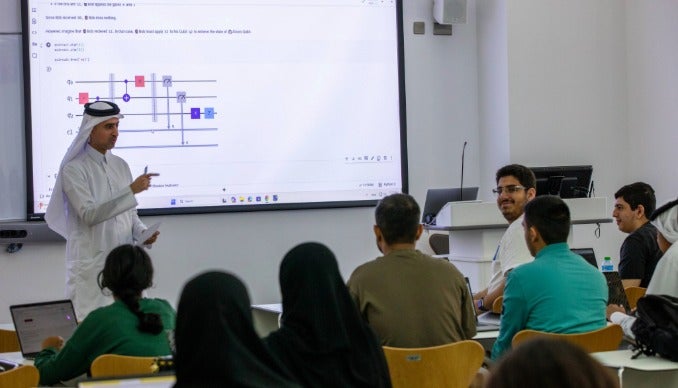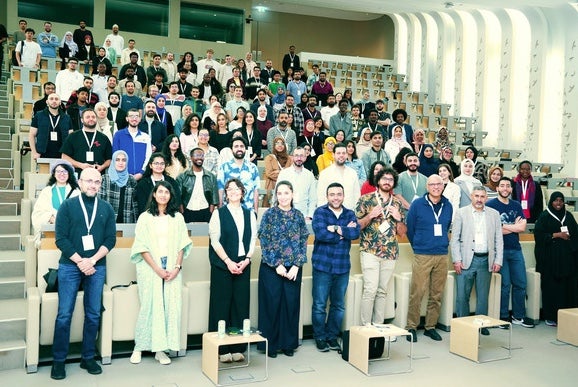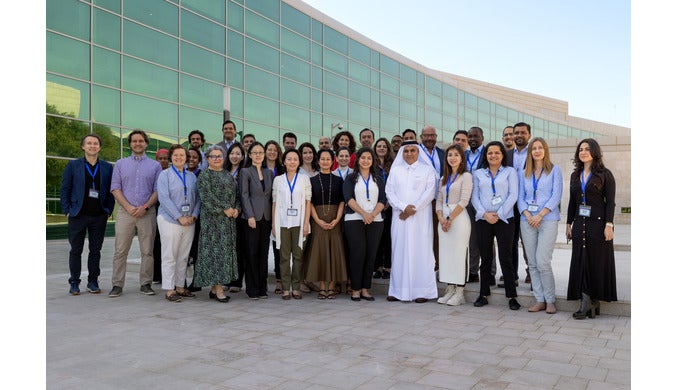Key findings identify six novel genes potentially unique to Qataris

A first-of-its-kind study led by Hamad Bin Khalifa University’s (HBKU) Qatar Computing Research Institute (QCRI) sheds new light on electrocardiogram (ECG) genetics among Middle Eastern populations.
Published in the Journal of the American Heart Association, ‘Genome‐Wide Association Study for Resting Electrocardiogram in the Qatari Population Identifies 6 Novel Genes and Validates Novel Polygenic Risk Scores’ utilizes data from the Qatar Precision Health Institute to explore the genetic architecture of ECG patterns. This led to the identification of previously unreported novel genes associated with ECG intervals that are potentially unique to the Qatari population. Findings are expected to support the development of Qatari-specific polygenic risk scores that outperform existing models in predicting ECG intervals and related heart conditions.
The study was led by Dr. Mohamad Saad, Senior Scientist, QCRI, in collaboration with academics and healthcare professionals from Hamad Medical Corporation, Columbia University, and Mass General Brigham. Co-authors also include several QCRI colleagues, as well as Dr. Georges Nemer, Associate Dean for Research, and Dr. Ayman Al Haj Zen, Associate Professor, both members of HBKU’s College of Health and Life Sciences.
Commenting on the study, Dr. Saad said: “Neither the clinical relevance nor national importance of this research should be underestimated. Studying the Qatari and Middle Eastern populations is crucial for precision medicine frameworks. Much of our understanding of the genetic architecture of complex diseases has been obtained from datasets that do not contain Middle Eastern individuals and communities. There is no guarantee that the current understanding we have is valid in our populations, which again, highlights the importance of our study.”
Dr. Saad and his colleagues have worked with a non-invasive tool for diagnosing cardiovascular diseases to add weight to evidence that ECG traits are heritable. His findings also pave the way for further research into inherited cardiovascular risk among particular groups, including the Qatari population, not to mention novel treatment options and targeted therapeutic interventions.
‘Genome‐Wide Association Study for Resting Electrocardiogram in the Qatari Population Identifies 6 Novel Genes and Validates Novel Polygenic Risk Scores’ was published in Volume 14, Number 5 of the Journal of the American Heart Association, and can be accessed here.










